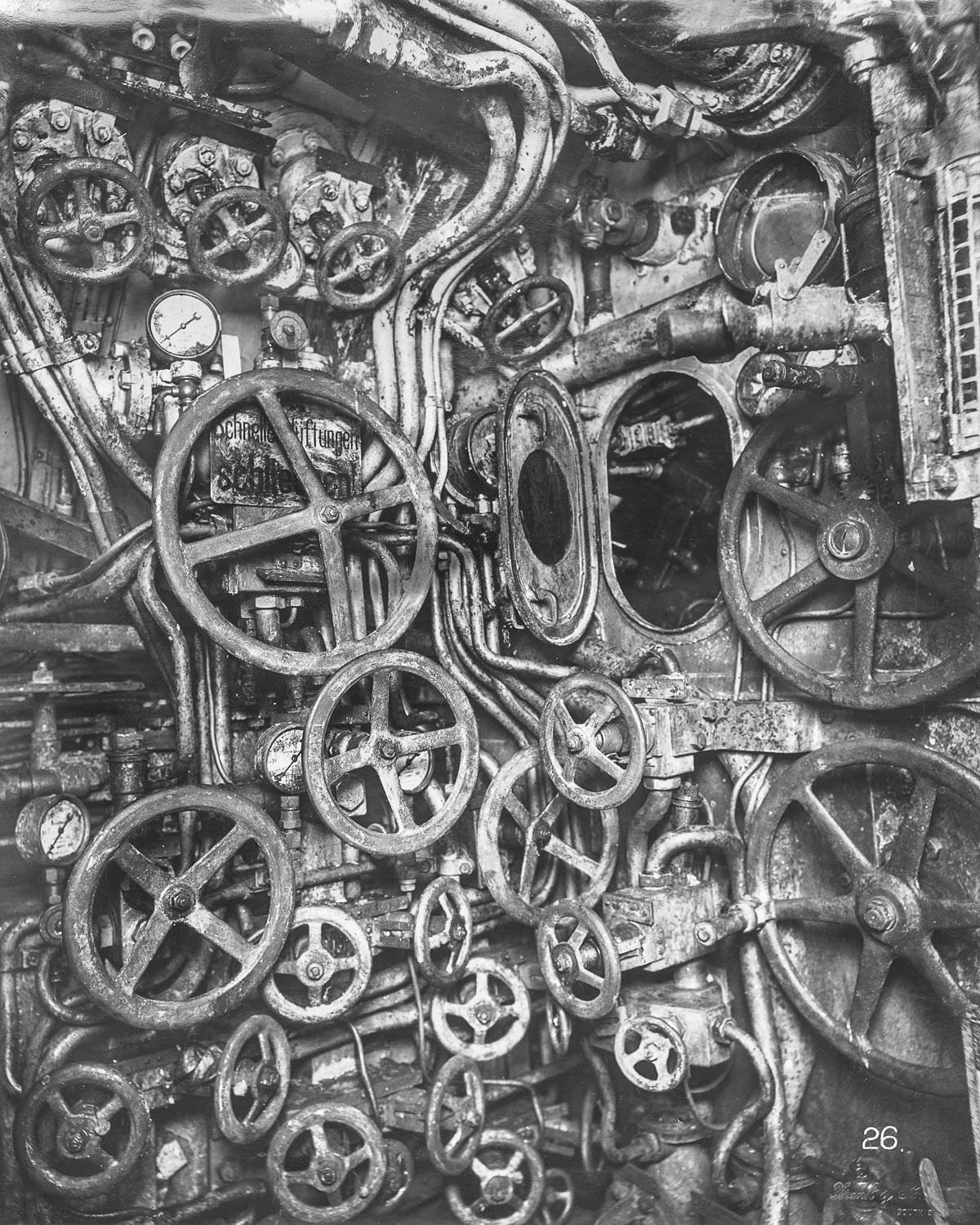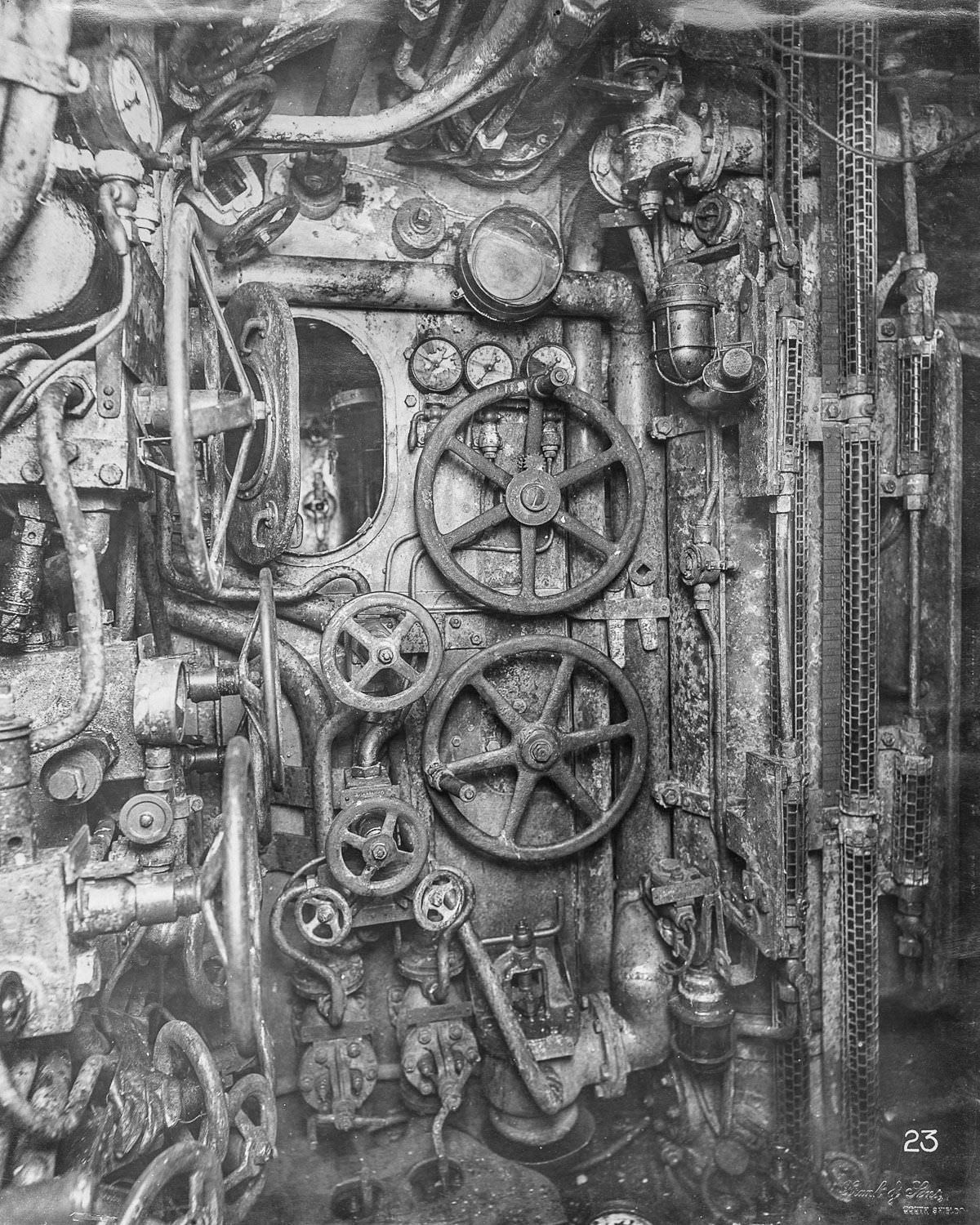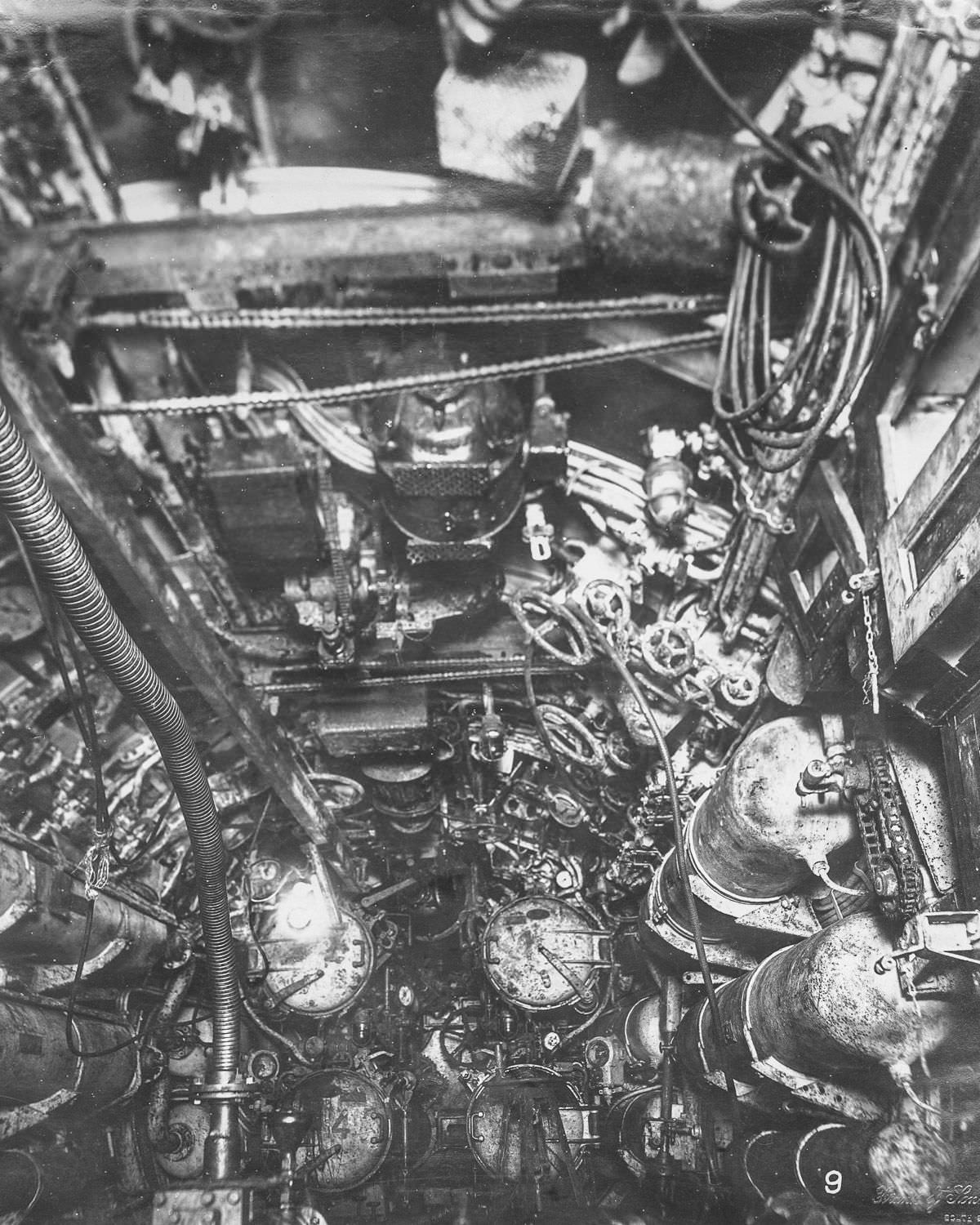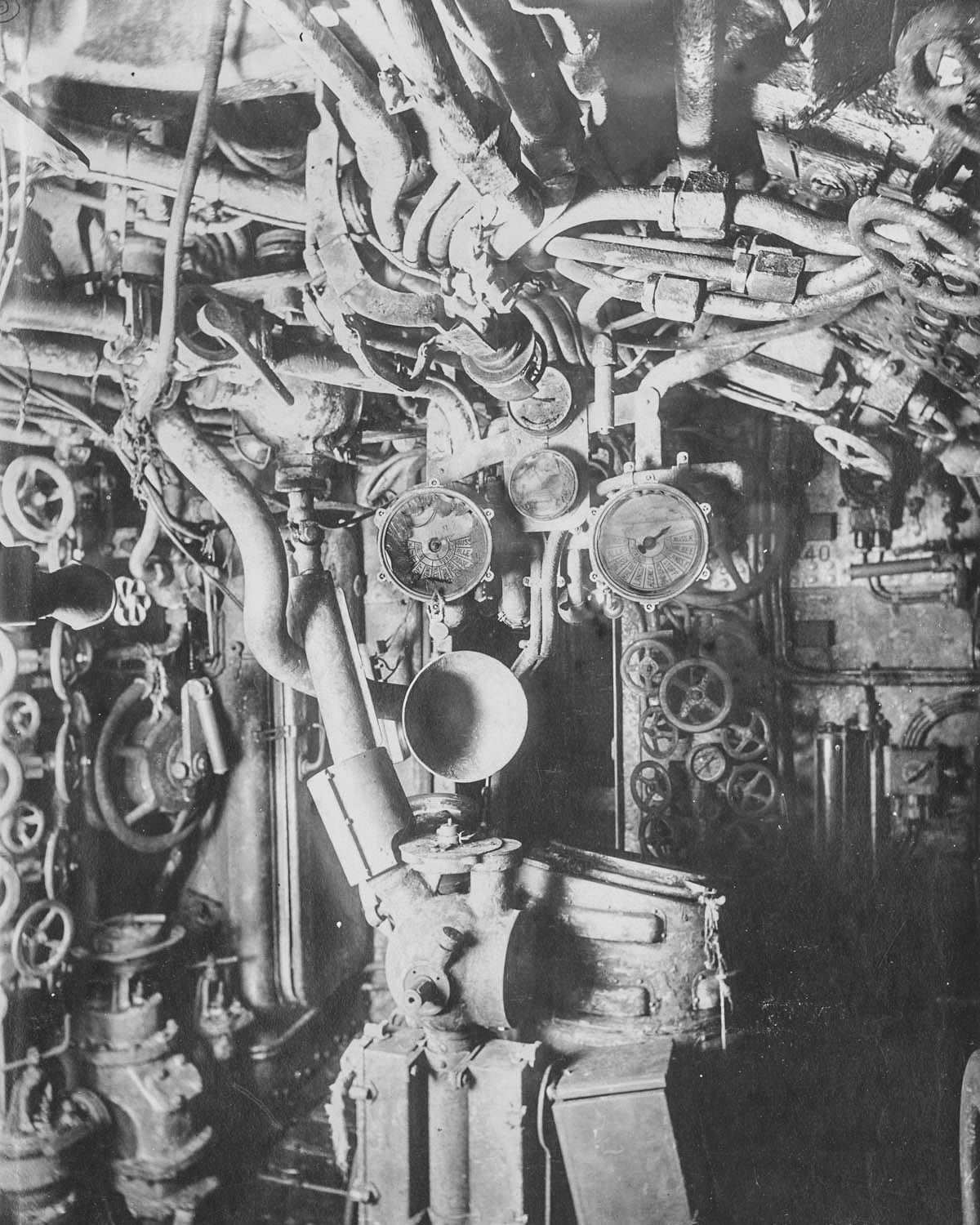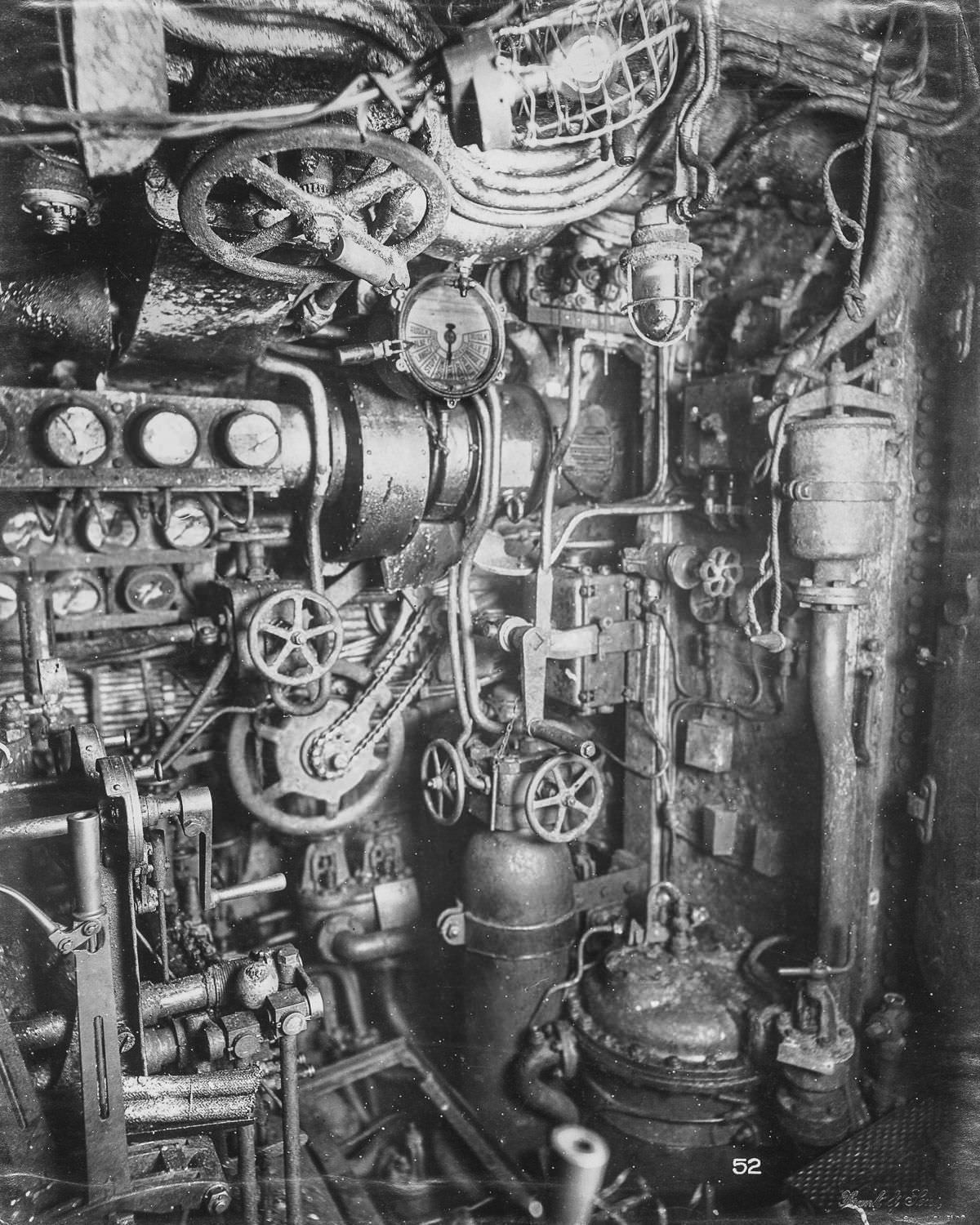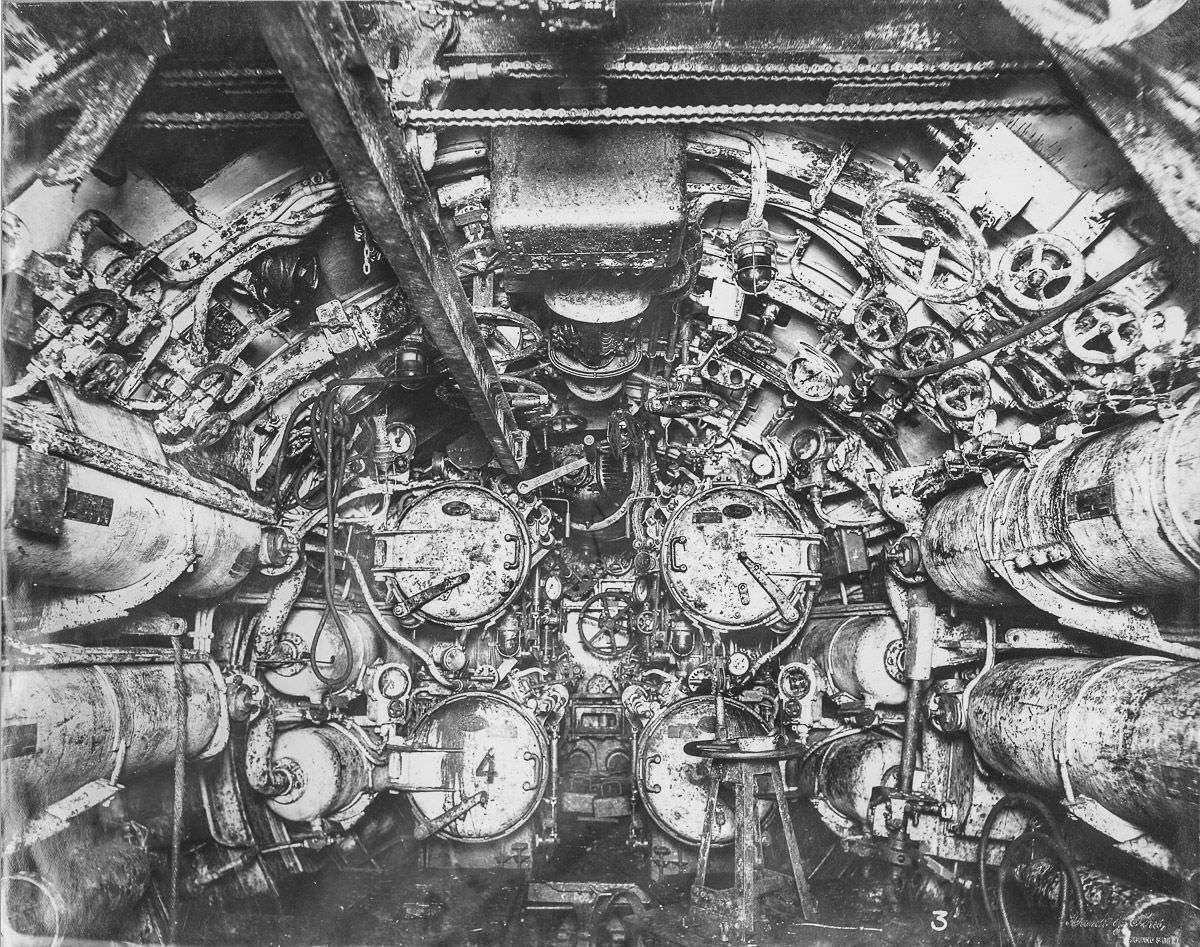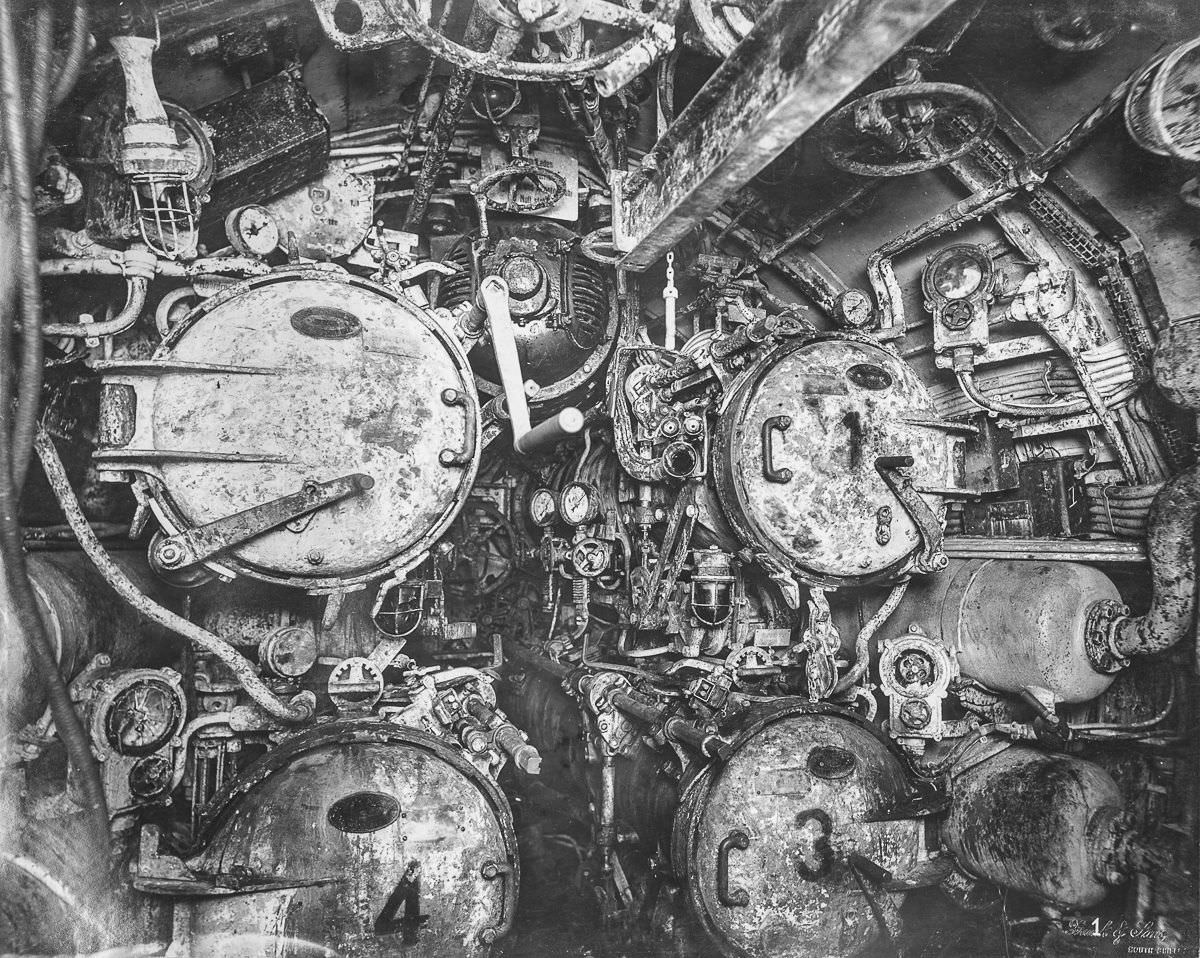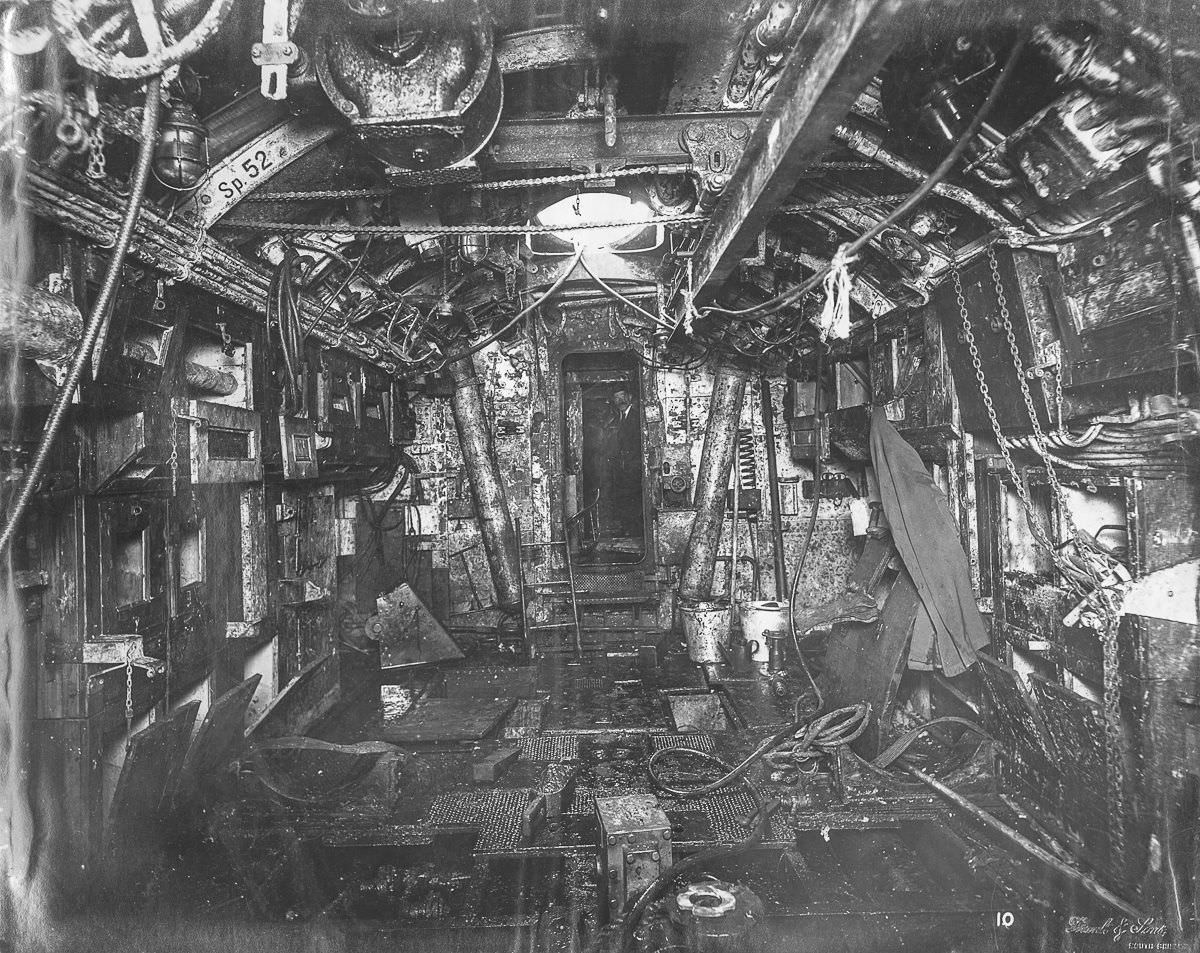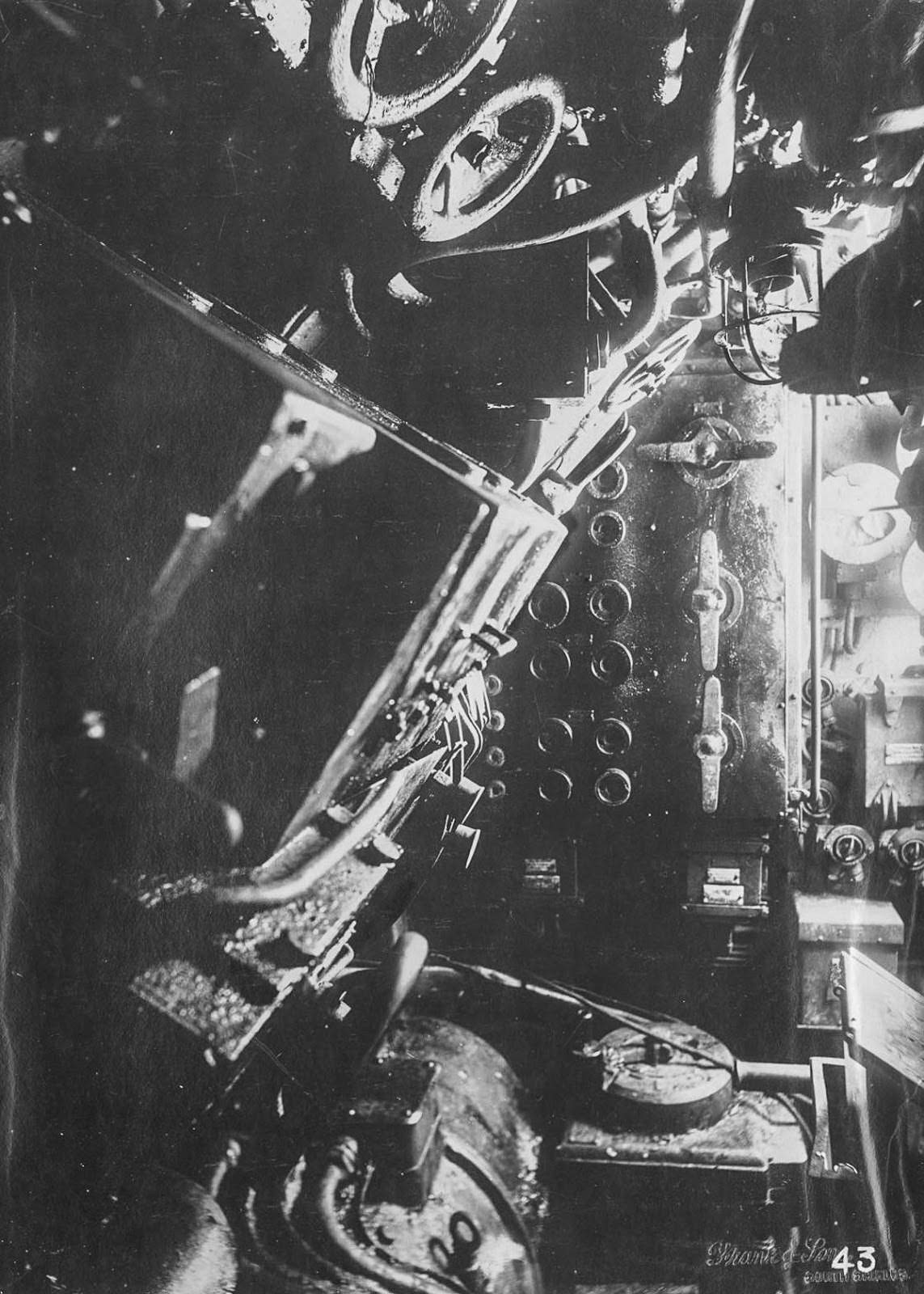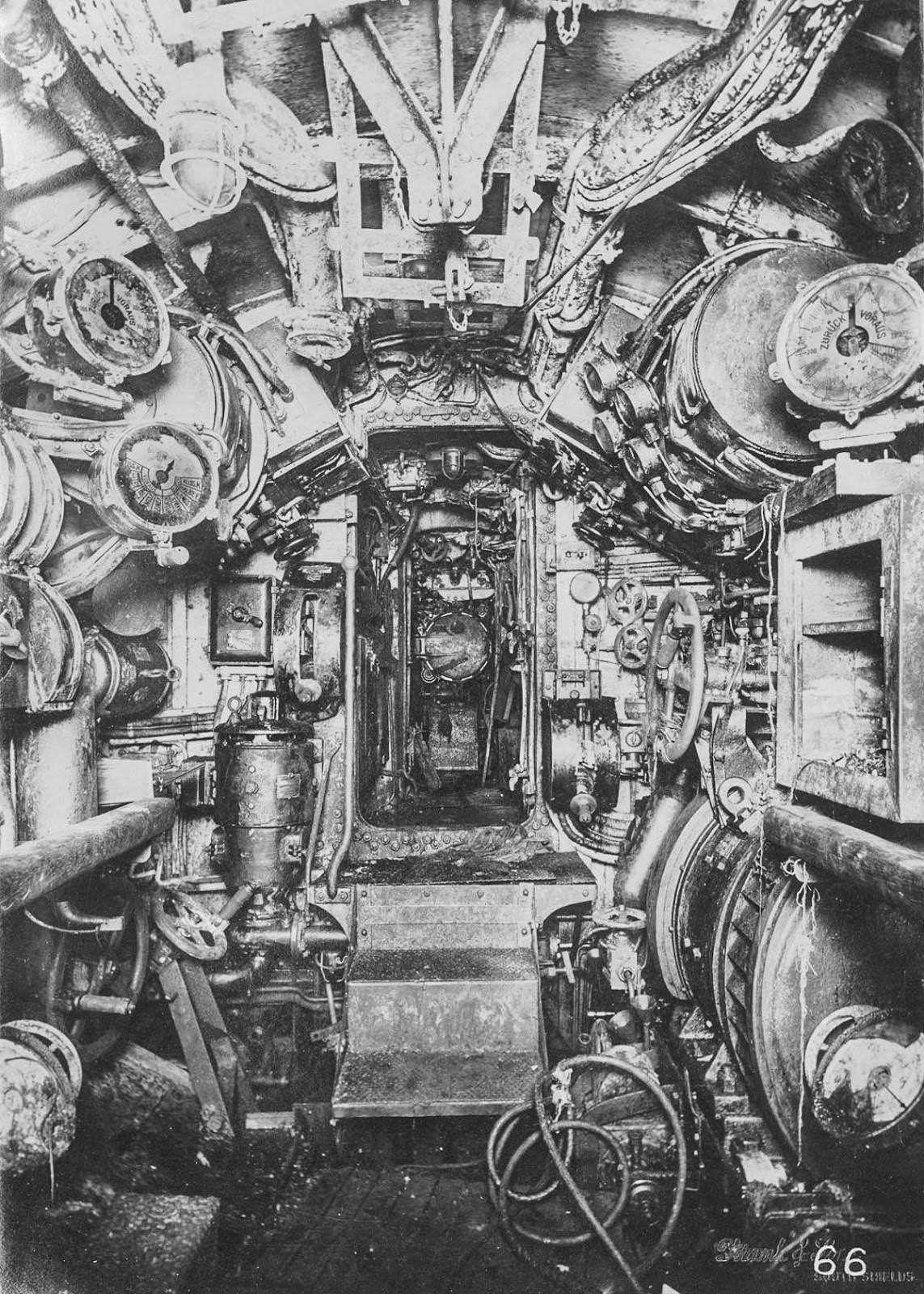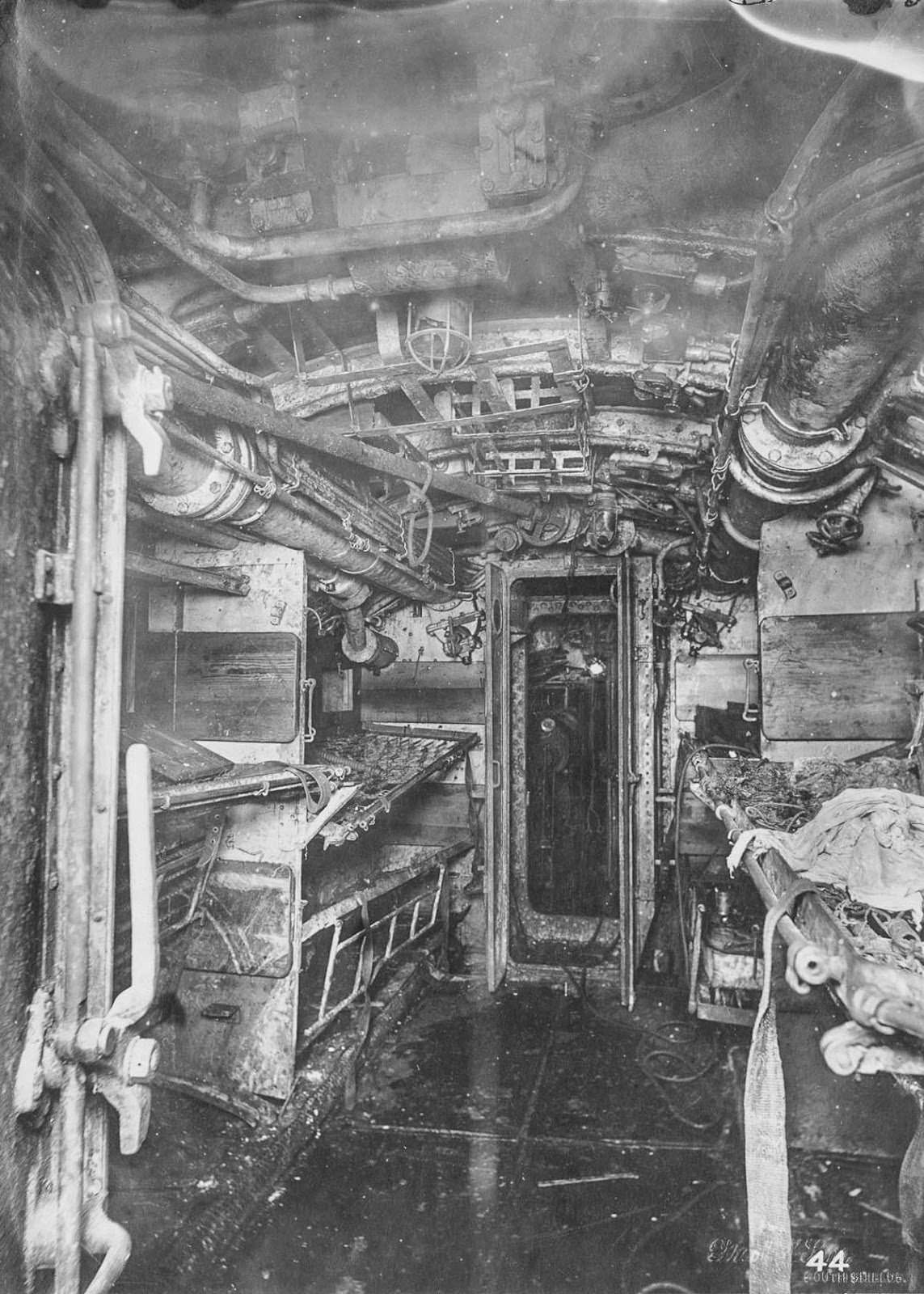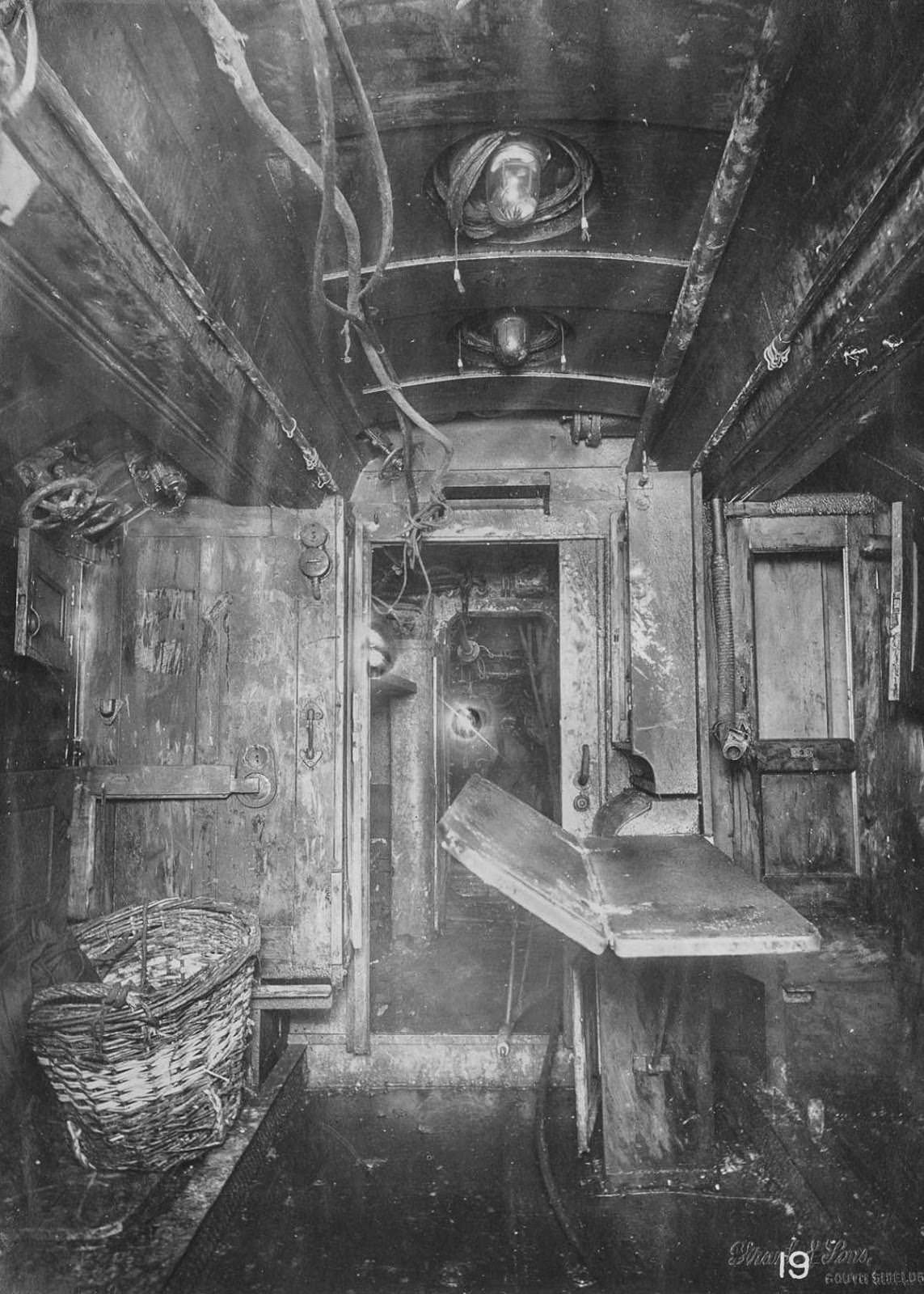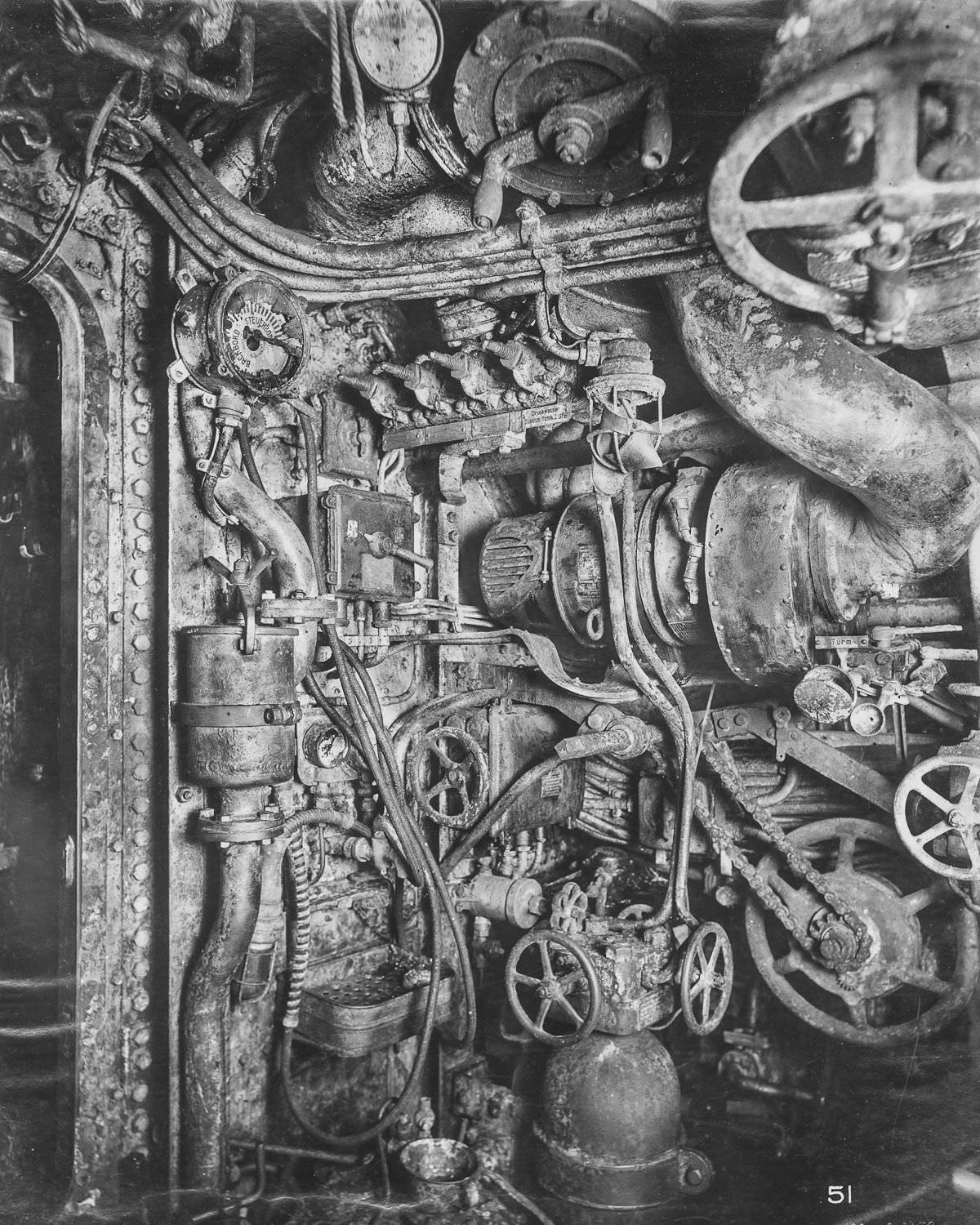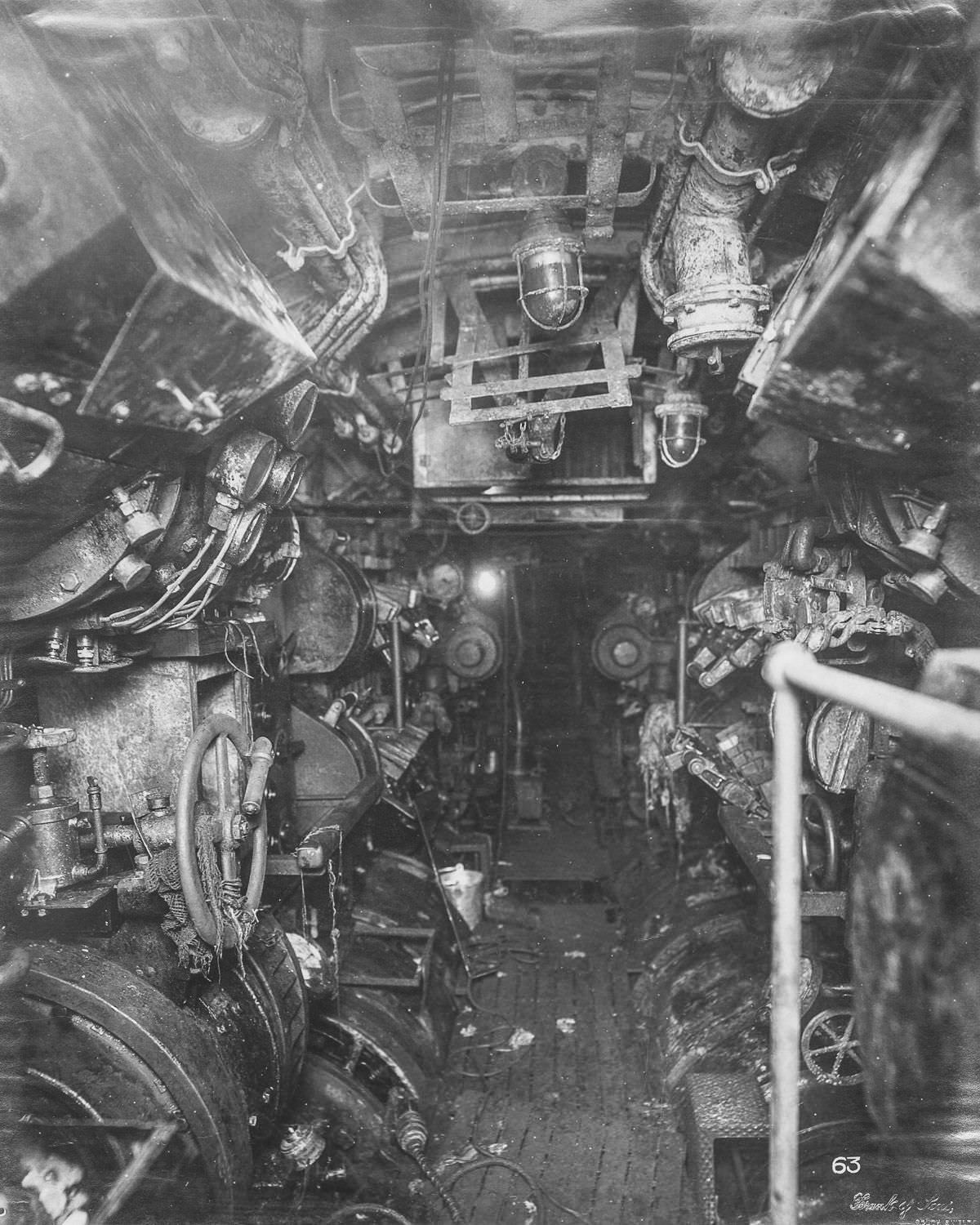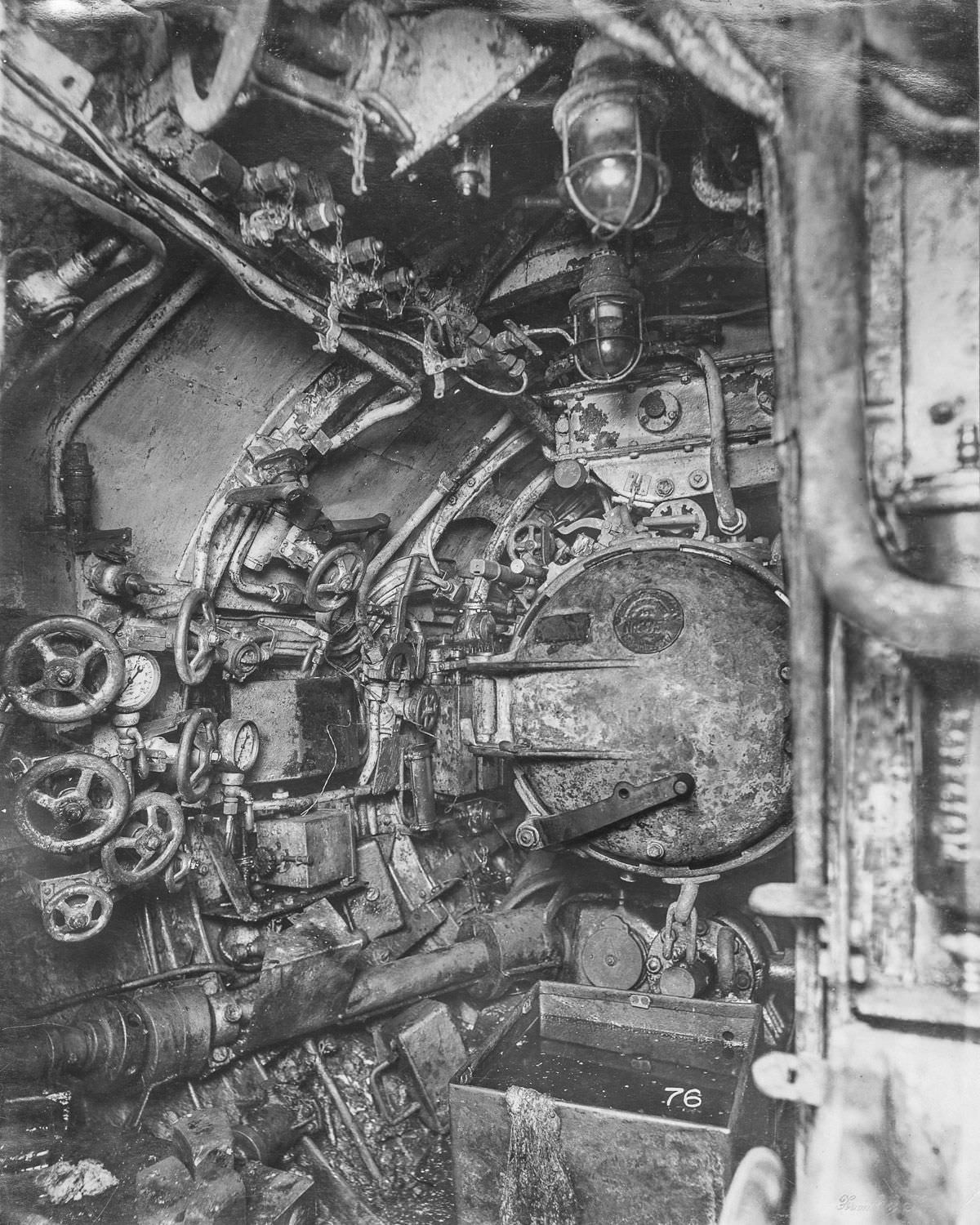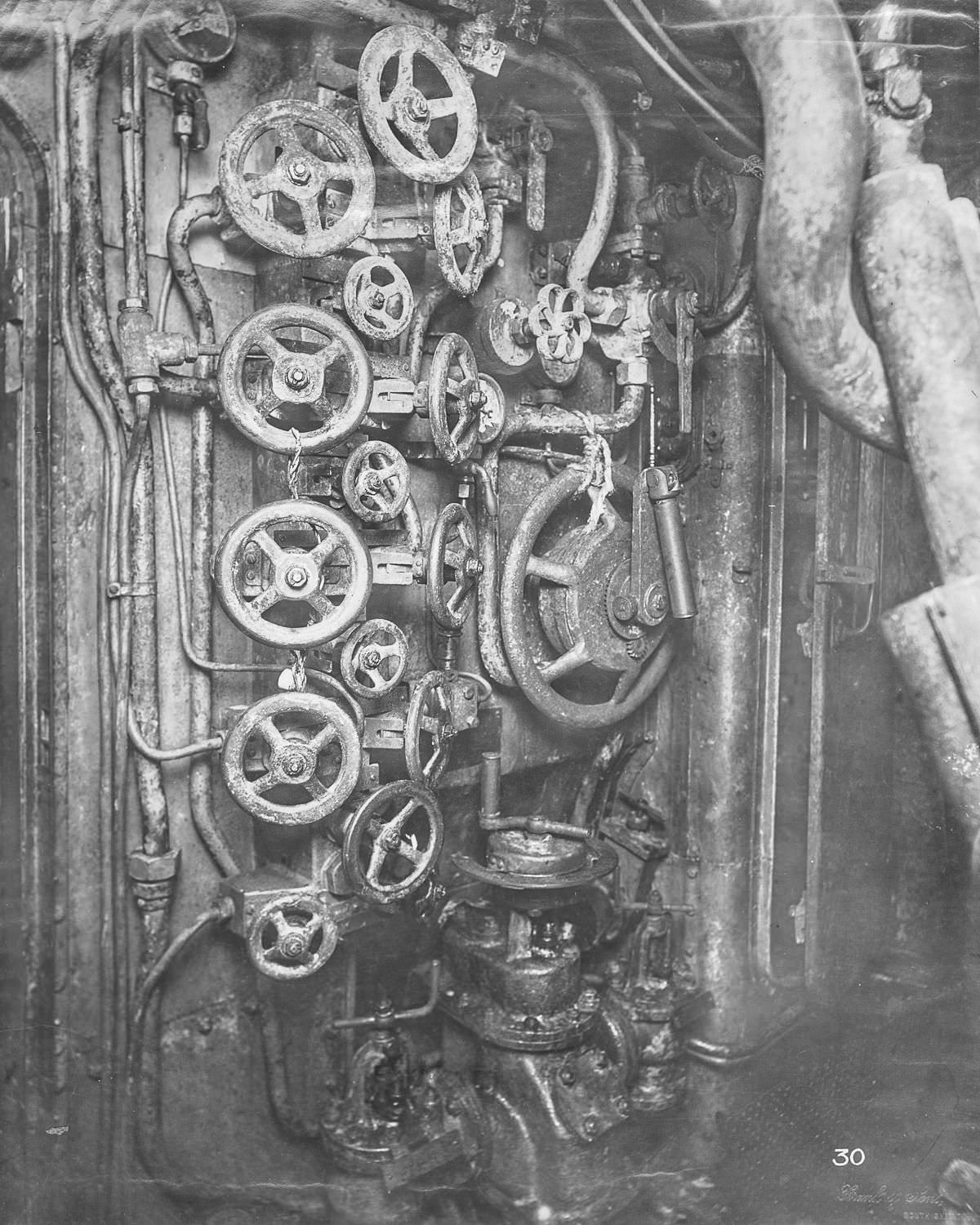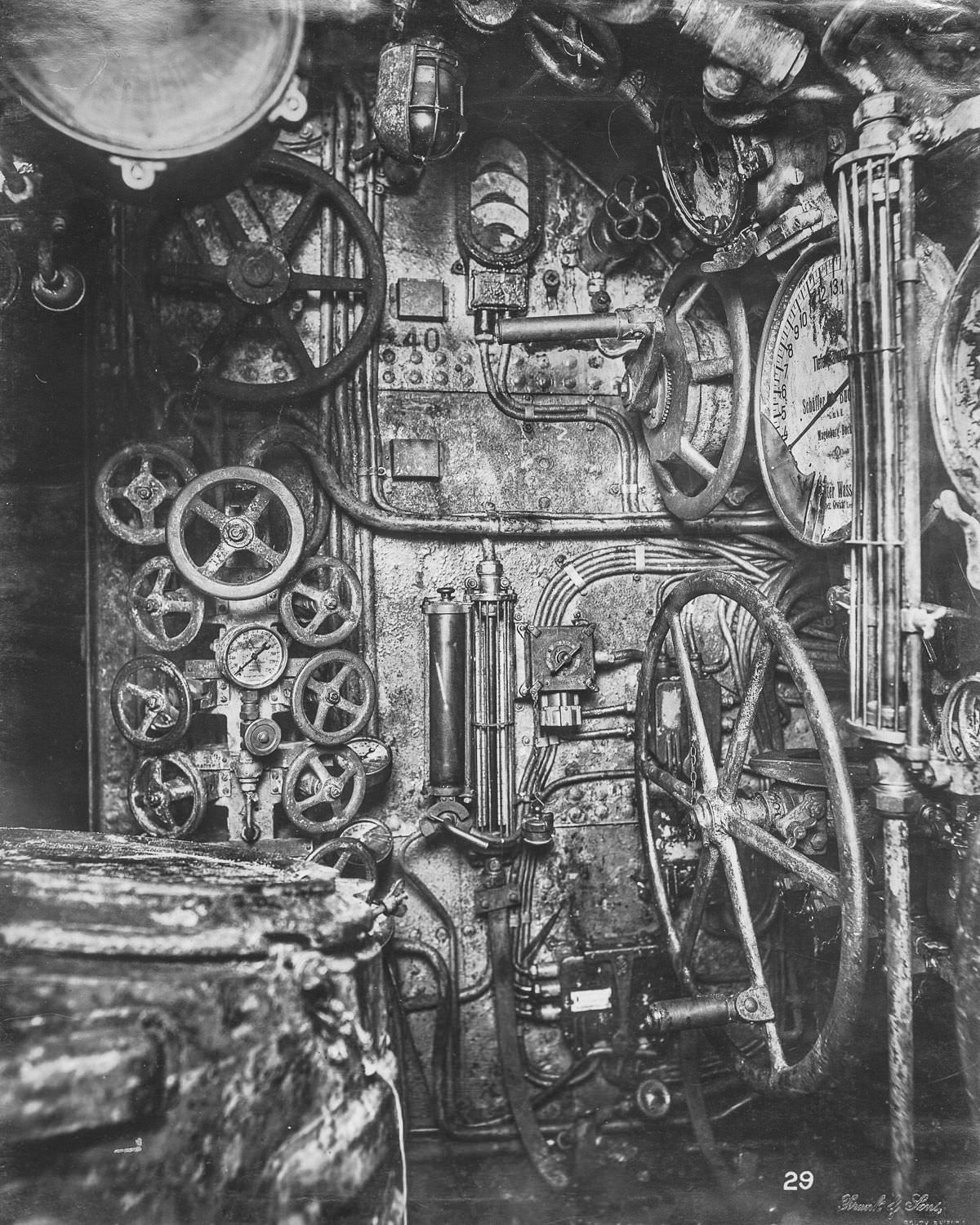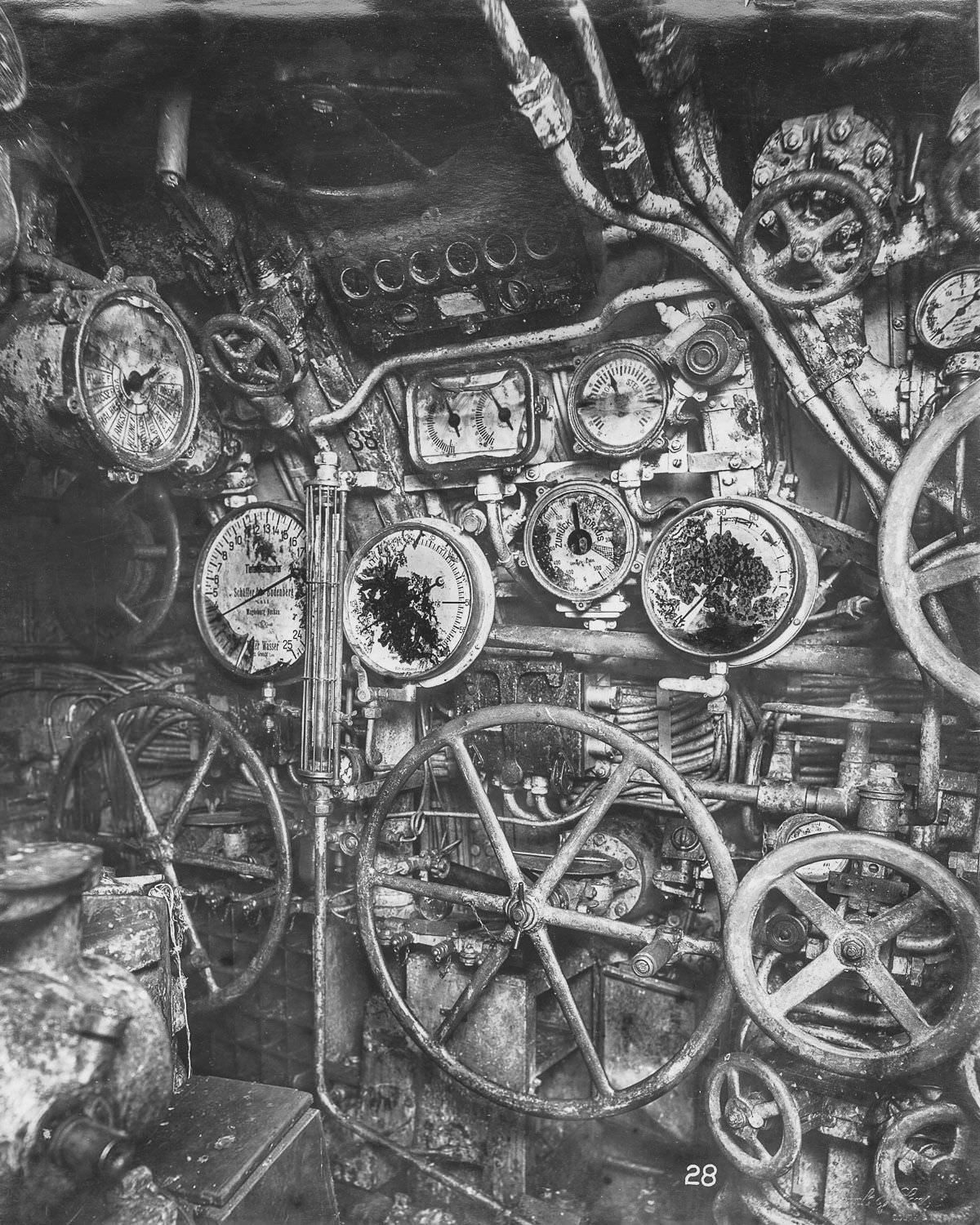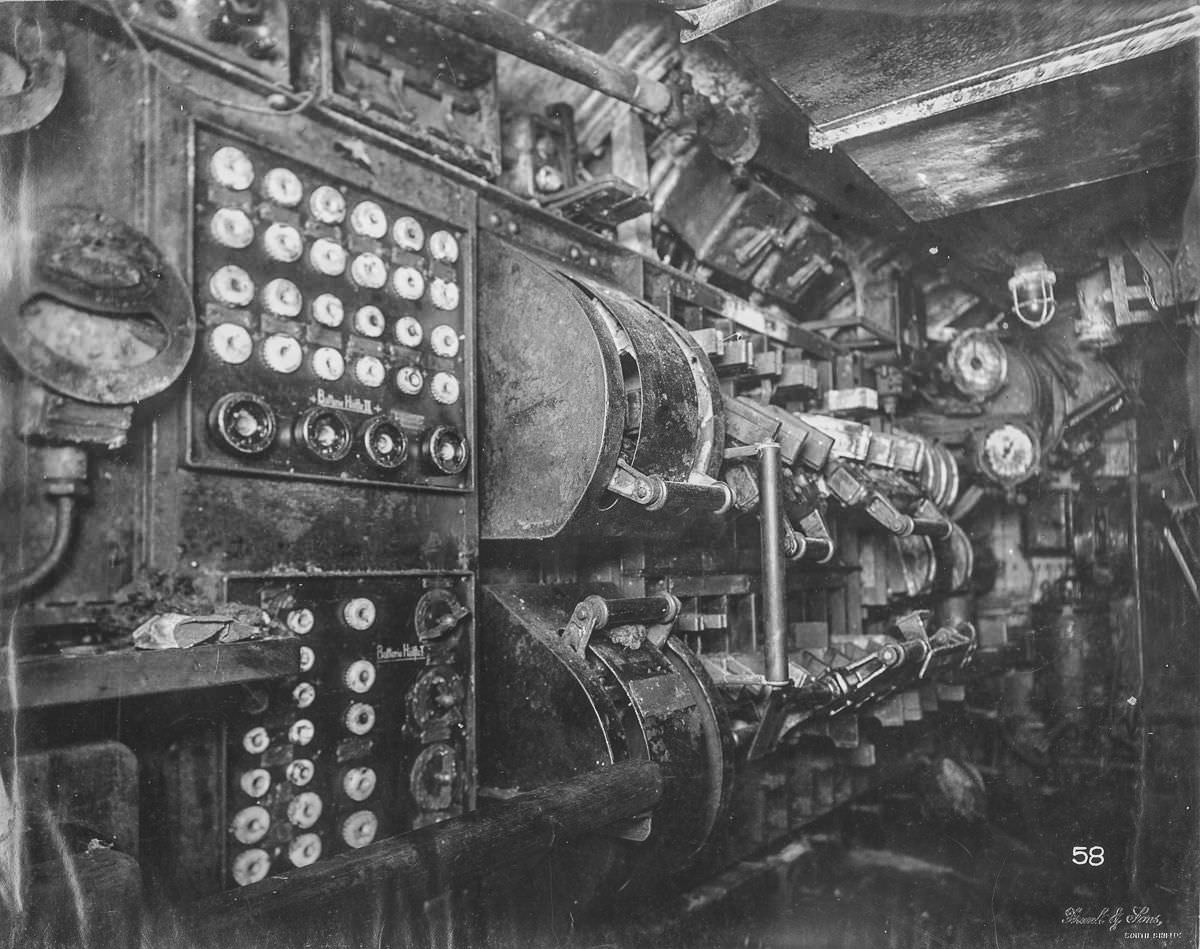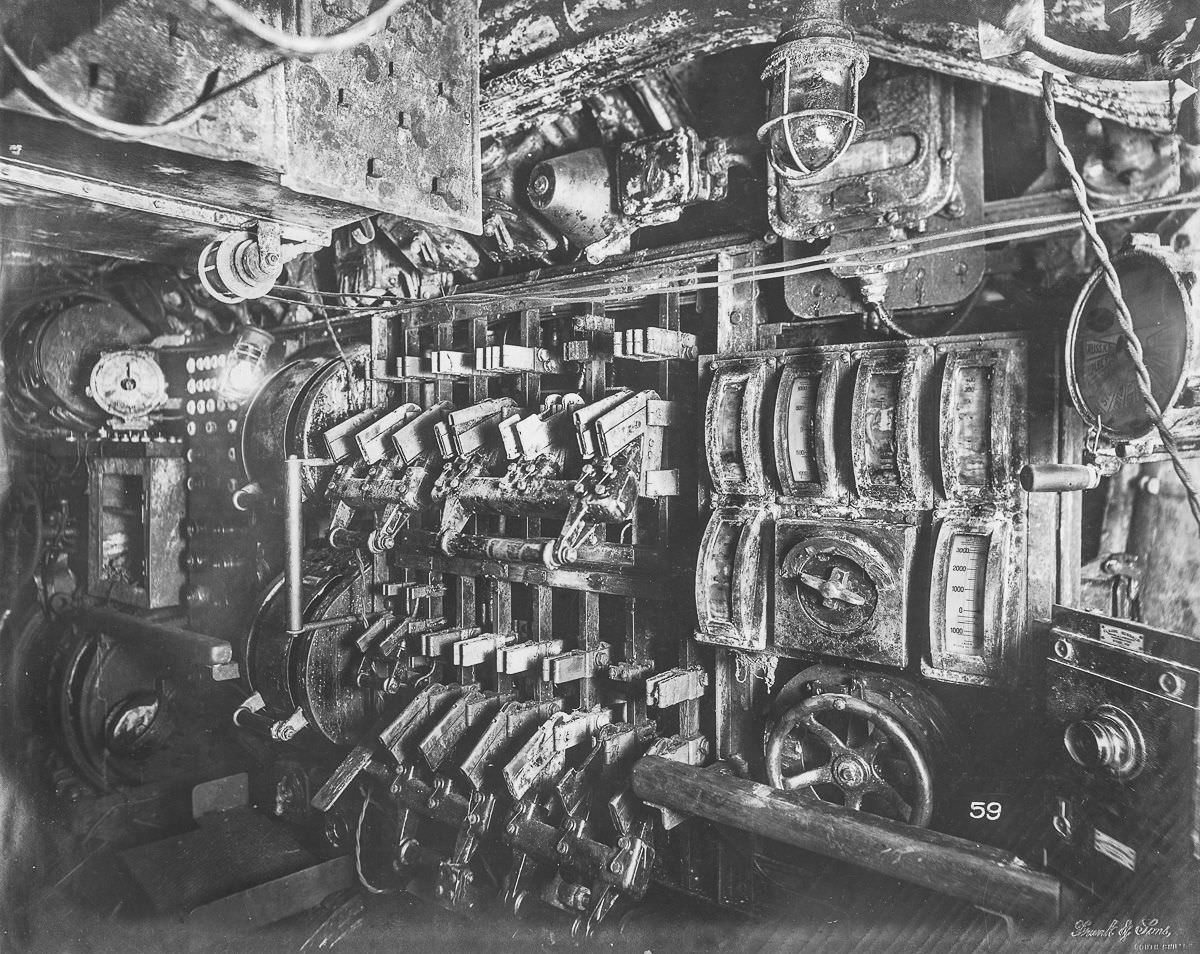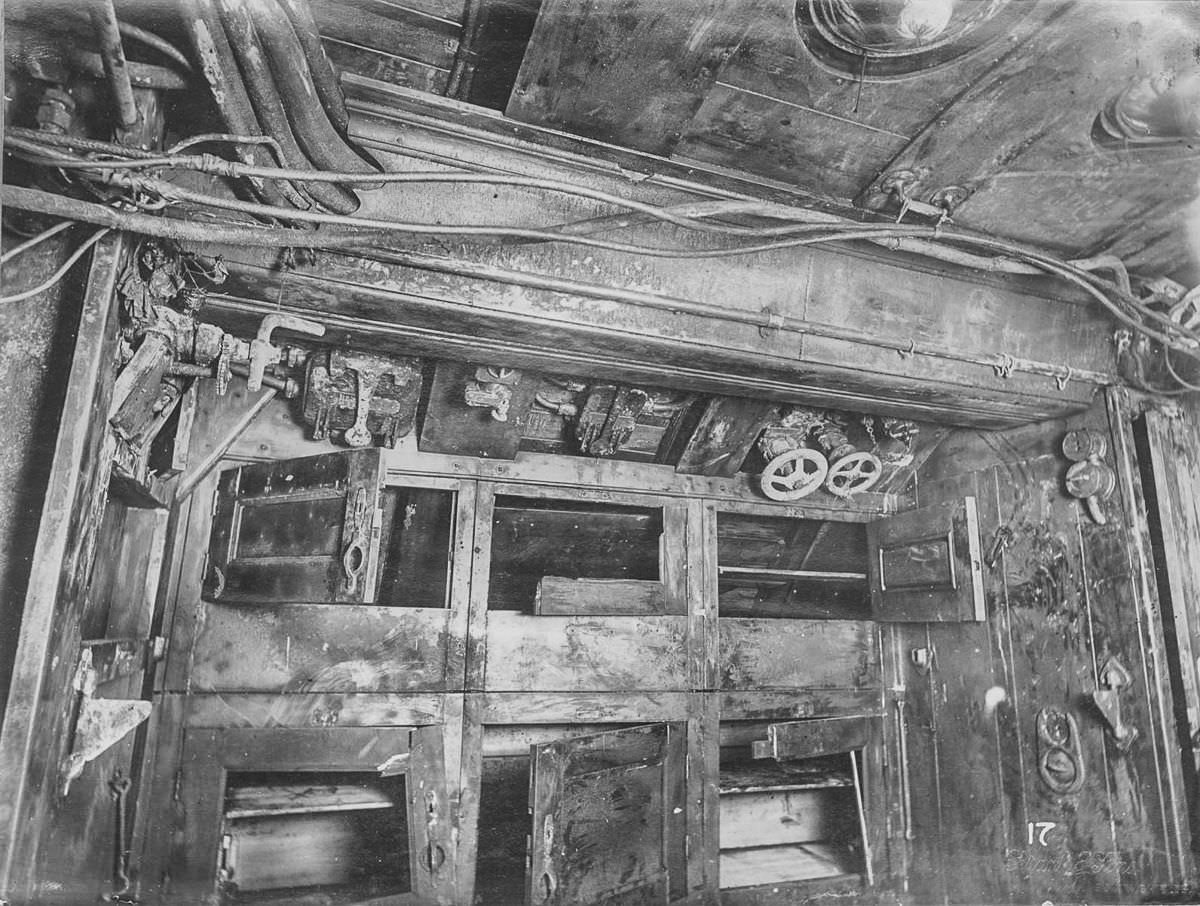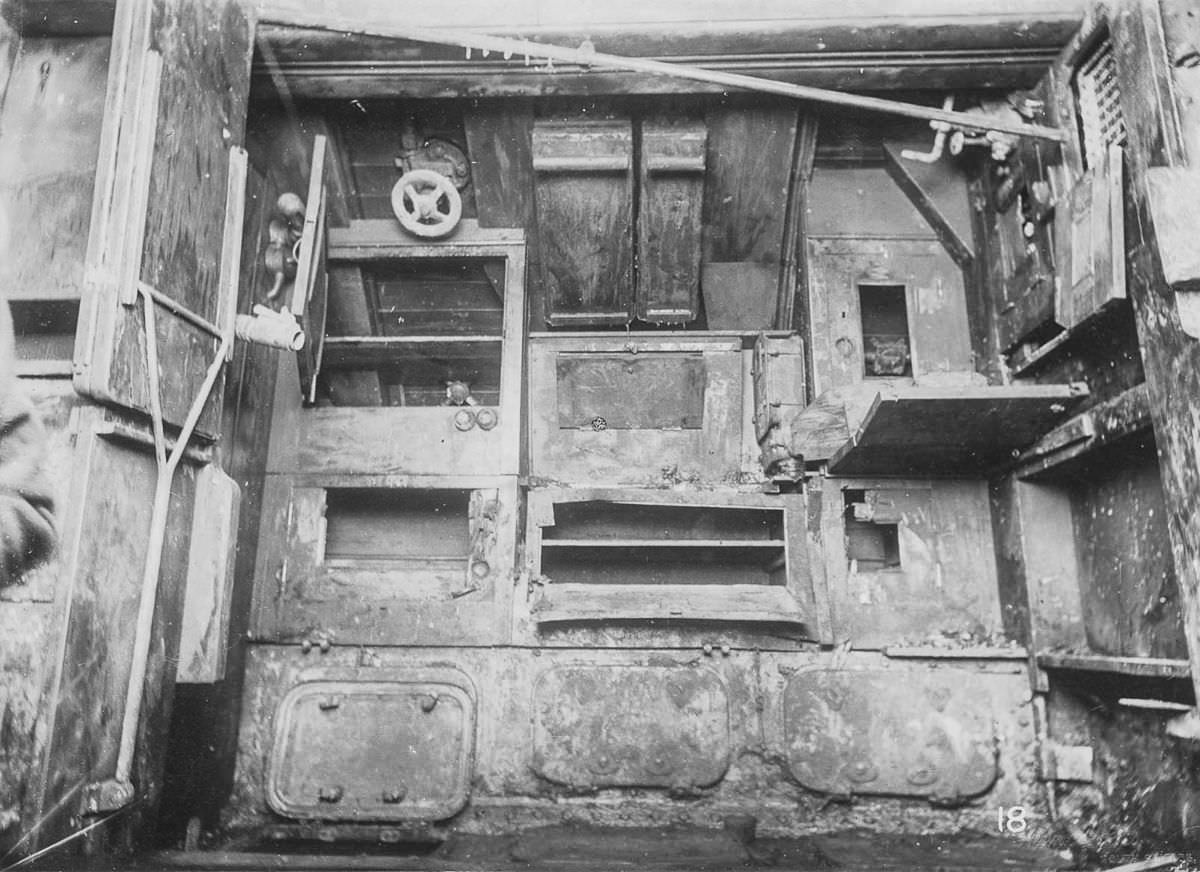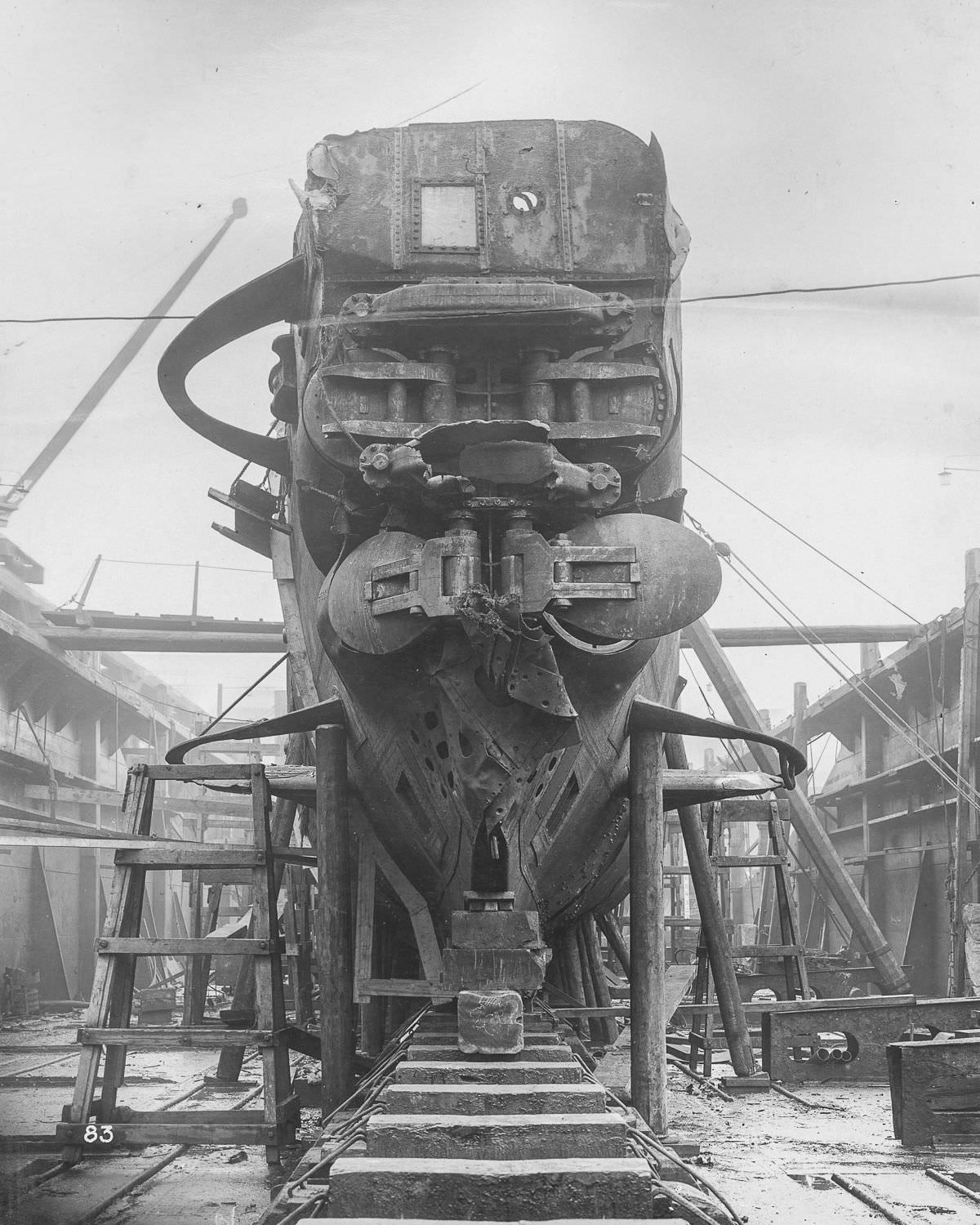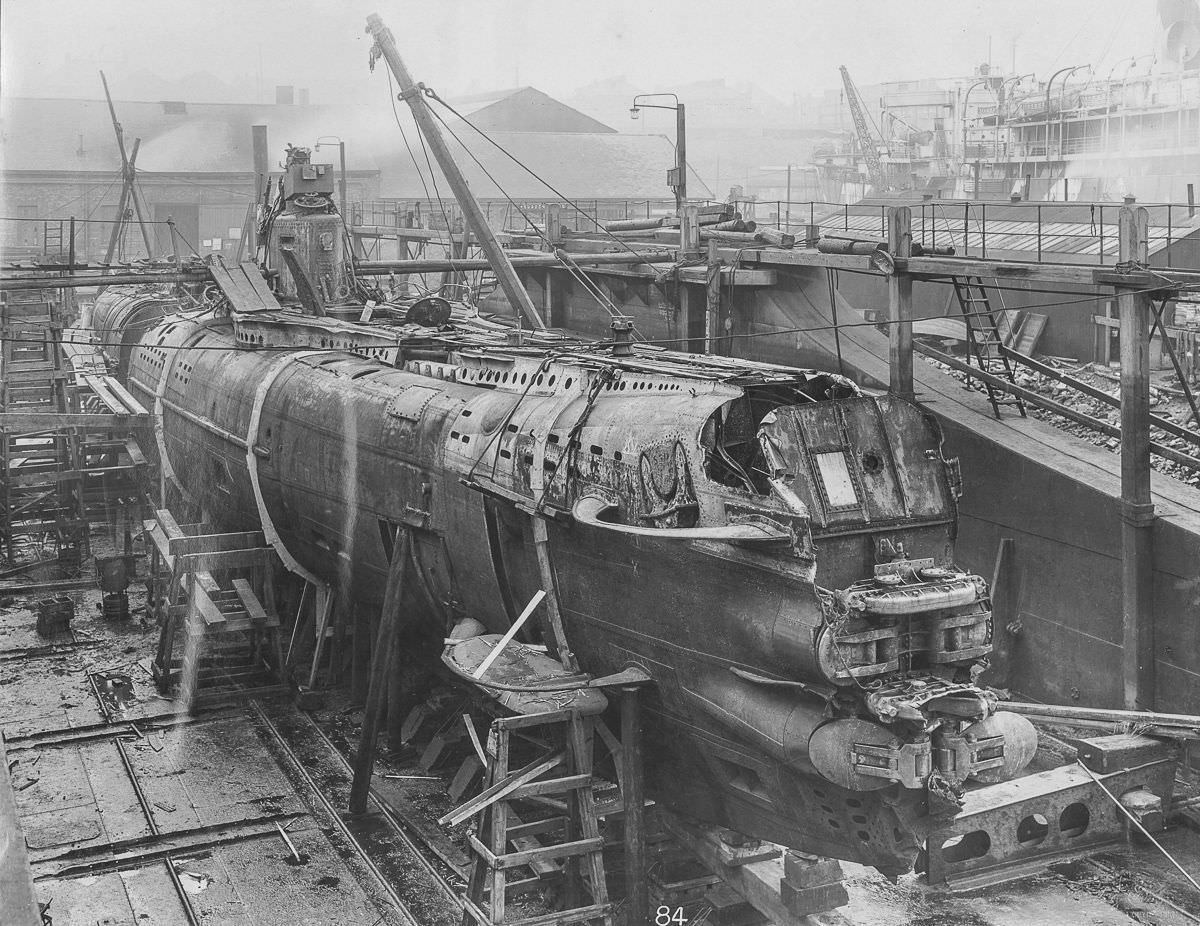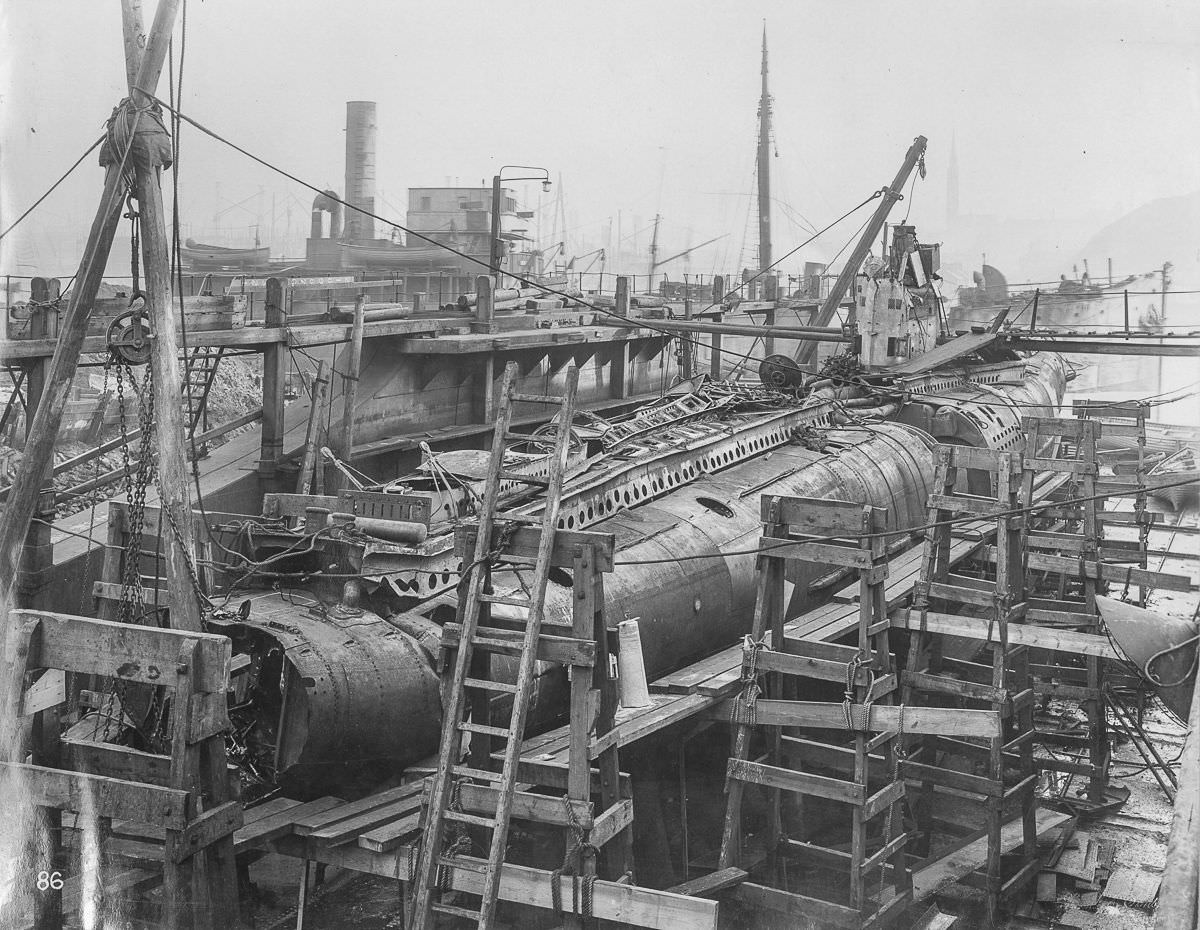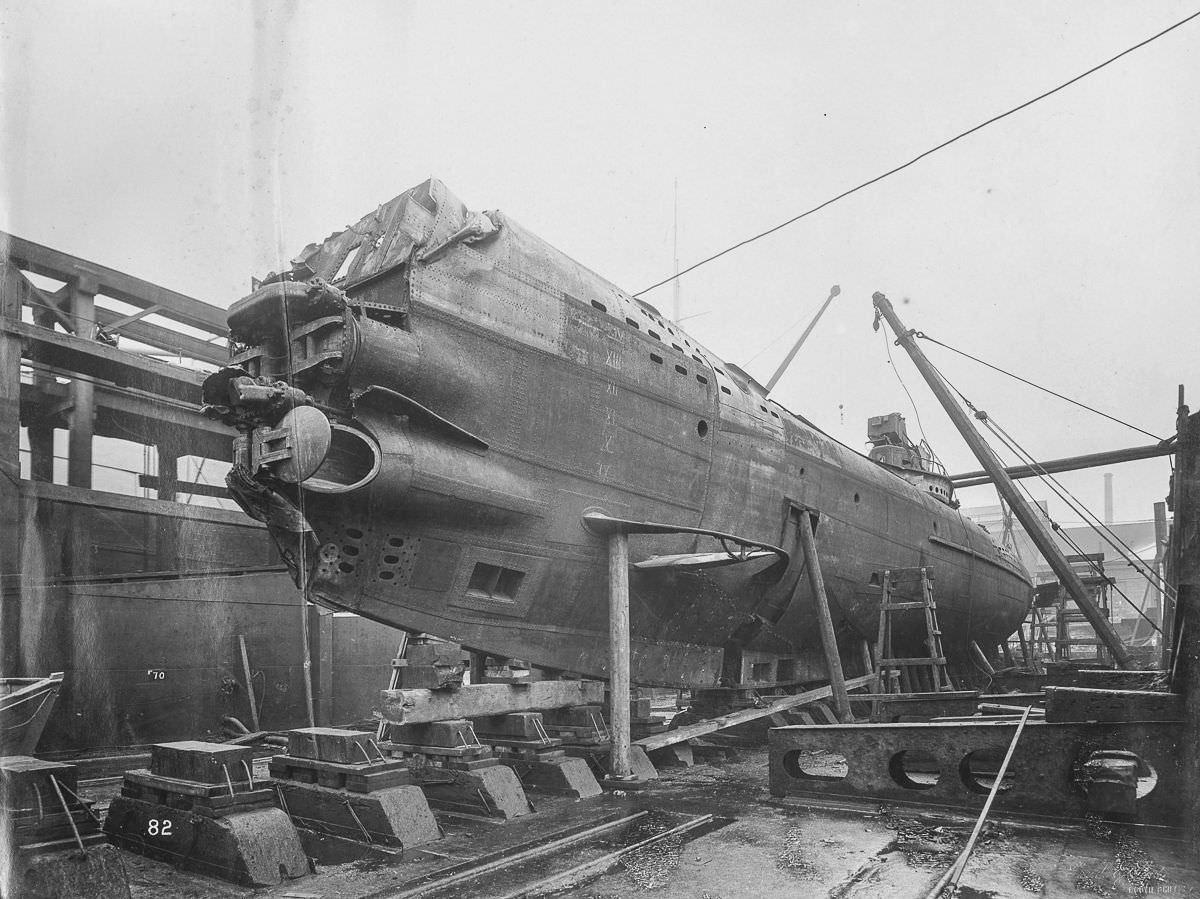In the annals of World War I, the German U-Boats have always held a grim fascination. Among them, U-Boat 110 stands out, captured by the British in 1918 and preserved in a series of haunting photographs that offer a glimpse into life beneath the waves. Let’s dive into this ethereal underwater world.
U-Boat 110, a German submarine, was part of Imperial Germany’s deadly underwater arsenal. Its fate changed in July 1918 when it was depth-charged, brought to the surface, and captured by the British naval forces. Its ghostly remains were meticulously photographed by the official British photographer, John Ernest Victor Whitcomb, thereby preserving a time capsule of naval history.
The series of black and white photos, despite their eerie silence, speak volumes about the mechanics of the U-Boat and the atmosphere within its confines. The images show narrow, claustrophobic passageways, robust machinery, arrays of valves and dials, and compact living spaces.
One of the photographs displays the control room, the submarine’s operational heart. You can see the helm, the diving controls, and the gauges which told the submariners their depth, bearing, and other crucial information. The tight quarters and extensive array of instruments underline the skill and precision necessary to navigate these underwater predators.
The living quarters also tell a tale of their own. Images show small bunks crammed into any available space, personal belongings scattered around, and even the galley, the submarine’s kitchen, equipped for long patrols beneath the waves. The sparse, utilitarian conditions offer a hint of the discomfort and stress endured by the crew during their underwater deployments.
But these vessels weren’t just made for comfort – they were weapons of war. The images of torpedo tubes, from where the deadly underwater missiles were launched, bring home the true purpose of these machines. The chilling sight of these tubes, empty and ghost-like, stands as a stark reminder of the destructive role these submarines played in the Great War.


